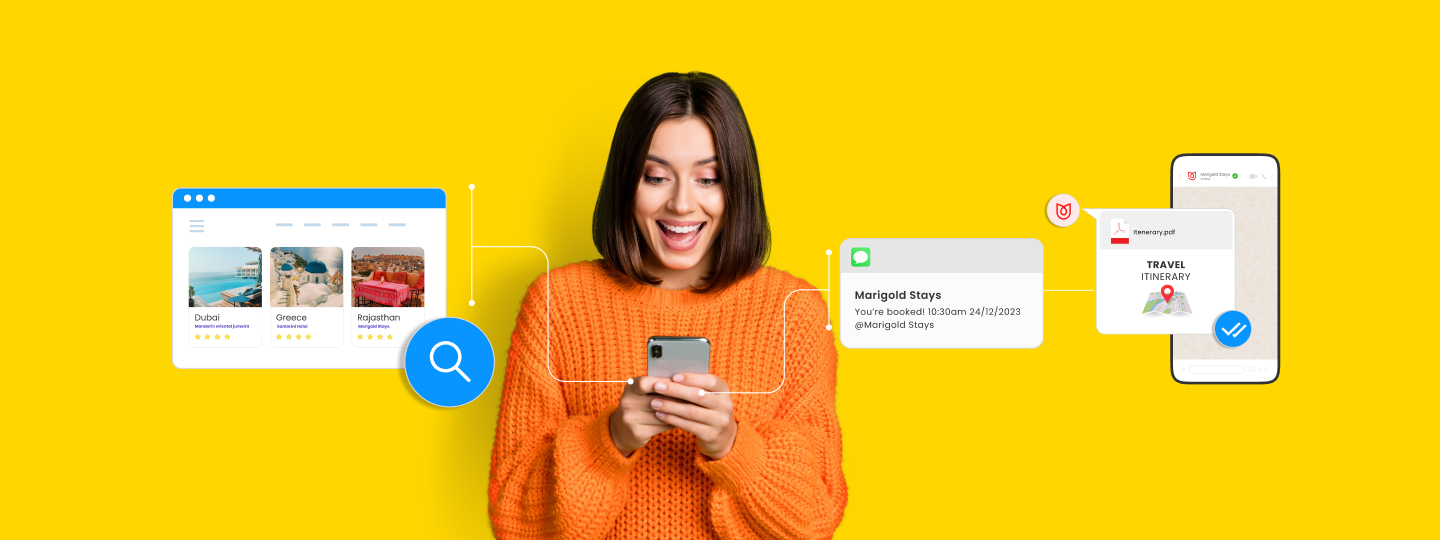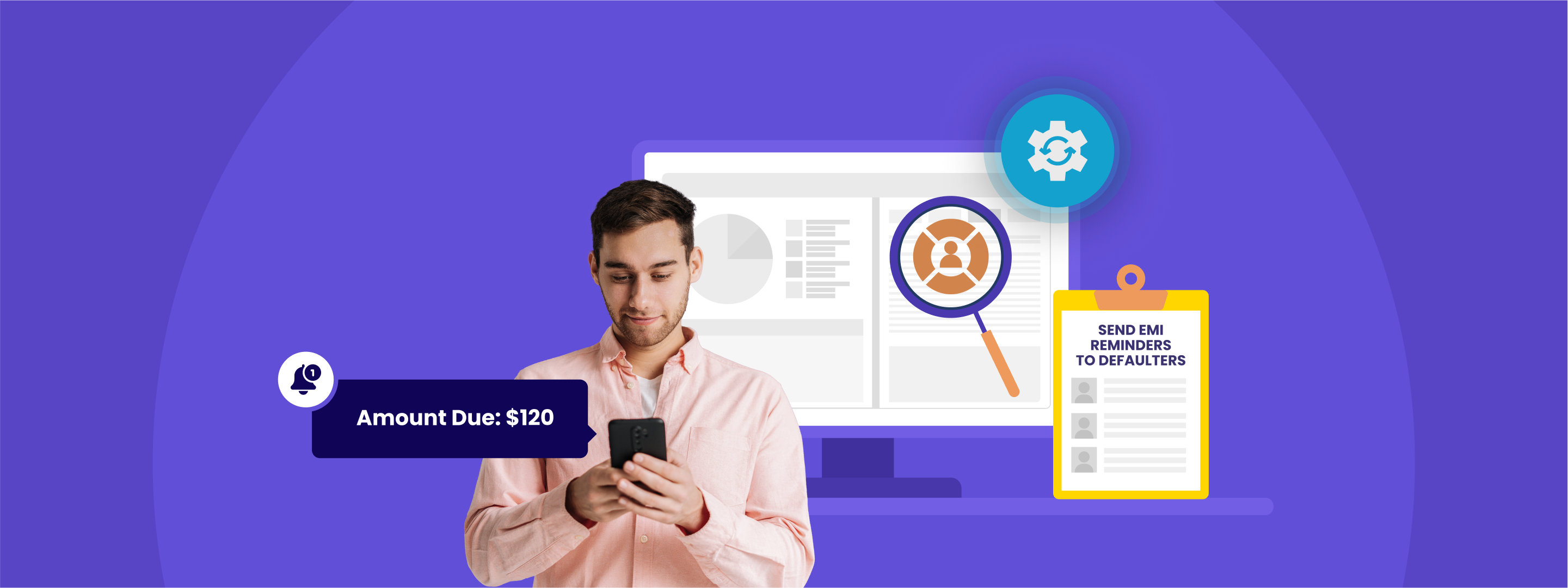Niche marketing is basically marketing targeted to a specific set of audiences interested in particular products or services. This strategy is useful for people who would reap the most benefits of these exclusively designed products or services.
Here are the 7 niche marketing strategies, along with examples, to help you get started:
- Engage in direct conversations with your customers
- Invest in hyper-targeted paid advertising
- Create video content to demonstrate your products in use
- Focus on local SEO and social media marketing
- Optimize your product descriptions
- Create hyper-targeted content
- Leverage user-generated content
1. Engage in direct conversations with your customers
As a niche marketer, you have a very limited and specific target audience that you need to cater to. Therefore, it becomes even more crucial for you to know your customers, solve their problems, and answer their questions.
You may already have a dedicated customer service team for that. But you need to take it a notch higher and interact on a more direct level. Social media provides that opportunity for you to engage your customers directly.
You can do this by responding to customers’ comments on your social media posts and replying to direct messages. You can use social media monitoring tools like Hootsuite to track your brand mentions and send prompt replies. This puts your customers more in touch with your brand and that is essential if you only have a niche customer base.
For example, Bonobos replies to user comments on their social media posts.

2. Invest in hyper-targeted paid advertising
Paid advertising is a marketing strategy used by almost all businesses at some point or other. However, you need to customize your paid advertising strategy for niche marketing.
You should use niche and specific keywords that your target audience might actually search for. Using broader search terms that get high search volumes will be a waste of money and effort for you. So, try to find keywords that are highly specific and targeted.
For example, if you have an apparel brand that specializes in organic cotton clothing, then using keywords like “apparel,” “men’s clothing,” or “women’s shirts” is a waste. That is too broad and will get all sorts of traffic and not just people looking for organic cotton clothes.
Therefore, you need to use keywords like “organic cotton clothes,” “organic cotton shirts for men,” etc. to attract only relevant consumers.
Here’s an example of a company that does exactly that with its Google Search Network advertisements.

3. Create video content to demonstrate your products in use
Videos are one of the best ways to show products in use and their different use cases. This kind of content is needed for niche products more than any other product. The reason for this is that the more unique your product is, the less people tend to understand it.
A lot of niche brands use videos to inform their prospective customers about how their product works and why they should buy it.
For example, Google created a video to explain how their innovative product “Google Pay” works to make it easier for people to use it. It got 64 million views clearly indicating that people were indeed interested in knowing how to use it.
4. Focus on local SEO and social media marketing
If your niche is geography-specific, then this may well be the most important marketing strategy for you. Just like we talked about hyper-targeted paid advertising, you also need to use niche, location-specific keywords for SEO and social media as well.
Using location-specific keywords will help attract a relevant audience to your social media pages and website. If you own a business in New York, you don’t want to attract people from all over the world to your website, because you don’t cater to them.
Therefore, add your location to your keywords to form long-tail keywords. For example, if you have a sushi restaurant in New York, your keyword can’t be just a “sushi restaurant.” It needs to have the location so that when people in New York search for sushi restaurants, yours ranks high on the Google SERPs and possibly in the map pack.
Similarly, when you post anything on social media, don’t forget to tag the location to ensure that it shows in search results. Also, add your location in your social media bios or the “about” section of your profiles.
Yet another way to optimize the results of your niche marketing efforts is by using multi-channel marketing and creating an enhanced experience for your users. This is possible by engaging users on Facebook, Instagram, and WhatsApp along with email, SMS, mobile push notifications, etc.
5. Optimize your product descriptions
When it comes to niche marketing, the final nail in the coffin has to be your product descriptions. These are what people look at to make that final decision of whether to buy a product or not.
The more interesting your product descriptions are, the more people will want to buy your products. You can do a lot with these like tell a story, list the key features, focus on what makes your product unique, etc.
Take this product description from Lush, for example. They list their product’s features in a very interesting way to make it sound really unique and exciting.

6. Create hyper-targeted content
Content marketing is an all-around marketing strategy that can be used by all marketers to their advantage. However, to use it as a niche marketing strategy, you need to be hyper-targeted and specific.
For niche marketing, the best content is something that is informative, useful, and relevant to your niche. One of the easiest ways to do this is to start a blog focused on your niche and write about the trending topics.
To further optimize your content exactly per your audience’s taste, you can use AI-powered solutions like Cortex. It helps you add photos, videos and other content and interact with users based on their historical behaviour data.
One good example of this is Whole Foods, which has a blog about organic and healthy food.

7. Leverage user-generated content
User-generated content is very effective in gaining consumer trust and building your online reputation. People consider UGC to be more authentic than branded content and trust a recommendation by another user more than a brand’s claims.
Therefore, you need to include UGC in your niche marketing strategy if you’re not already doing so. You can use testimonials, reviews, social media posts, or anything using loyal customer segmentation to your advantage. You can use these on your social media profiles as well as your website.
Here’s an example of how Powell’s Books leverages customer testimonials for their Instagram posts.

Conclusion
Niche marketing is different from regular eCommerce marketing. Niche marketing requires more granular targeting, which means creating more personalized marketing content, more accurately-targeted ads, amidst others.
Niche marketing is not everyone’s cup of tea but can be nailed if you know the right techniques. This post details some of the best e-commerce niche marketing strategies that are easy to use and are known to work. Use these to take your brand to the next level in 2022.
Have any questions about any of these niche marketing strategies? Feel free to ask in the comments section.
Subscribe to our newsletter to stay updated on the latest in B2C marketing


































 Vanhishikha Bhargava
Vanhishikha Bhargava

 Diksha Dwivedi
Diksha Dwivedi



